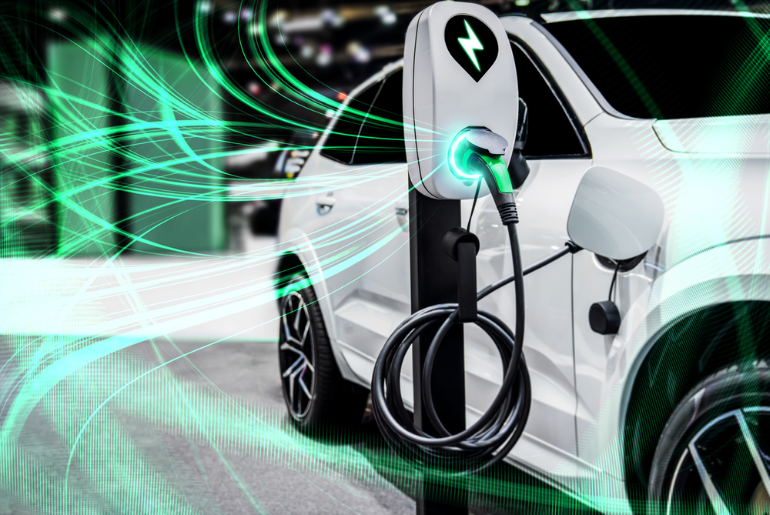With the increasing rate of urbanization and growing awareness of the impact of climate change, the importance of efficient and environmentally friendly means of transport has never been greater. Smart mobility, combining intelligent technologies with transport systems, is gradually becoming essential in solving these problems. Using electric cars and establishing charging stations are the cornerstones of smart mobility. They are crucial in shaping a sustainable, efficient, and convenient city transport system.
Rise of Electric Vehicles
Electric vehicles have gone from being a luxury to a standard mode of transport due to the development of batteries, awareness of the environment, and government support. Compared to traditional internal combustion engine vehicles, EVs emit no tailpipe pollutants, positively impacting air quality in cities and the environment. Also, the operational costs of EVs are relatively low because electricity is cheaper than fossil fuels, and the maintenance costs are also low.
The integration of EVs into Smart Mobility
Smart mobility uses IoT, AI, and big data to improve transportation’s effectiveness, safety, and environmental impact. Electric vehicles fit perfectly in this context because they integrate well with digital technologies and renewable energy. Here are several ways in which EVs are integral to smart mobility:
- Connected Vehicles: The current generation of EVs has connectivity capabilities that enable real-time interaction with other vehicles, charging stations, and traffic control systems. This connectivity allows for efficient routing, traffic flow control, and even predictive maintenance, which all help to minimize traffic and enhance travel time.
- Autonomous Driving: Self-driving technology is integrated into electric cars. Self-driving electric cars can be used effectively in ride-sharing services, thus decreasing the number of personally owned cars and, consequently, the total number of vehicles. This not only reduces traffic congestion but also reduces the effects on the environment.
- Energy Efficiency: Smart grids can be connected to EVs to control the demand and supply of electricity most efficiently. Off-peak hours can be used to charge EVs using excess renewable energy. At the same time, V2G technology enables EVs to feed stored energy back into the grid during peak demand, thus increasing grid reliability and efficiency.
The Importance of Charging Infrastructure
The use of electric cars is highly dependent on the available charging infrastructure and is planned for the future. Optimal charging solutions are critical to reducing range anxiety, the concern that a vehicle will not have enough power to complete a journey. Here’s how charging infrastructure supports smart mobility:
- Public Charging Stations: A network of easily accessible public charging stations is needed. These stations, which are fitted with fast charging, guarantee that EV owners can charge their cars during their daily use or on long trips. Smart charging stations can also provide users with information on availability and waiting time and hence improve the user experience.
- Residential and Workplace Charging: It is essential to encourage the placement of charging points at homes and workplaces. Home charging is convenient as it enables charging EVs at night, while workplace charging increases the effective range of the EVs for daily users. Promotion and subsidies for these chargers can speed up the process.
- Renewable Energy Integration: The charging infrastructure should be designed to use renewable energy sources. For instance, charging stations powered by solar energy can significantly minimize the emissions of greenhouse gases produced during the charging of EVs. Using renewable energy sources with charging infrastructure is consistent with smart mobility and sustainable city development.
- Innovative Charging Solutions: Smart charging and wireless charging are some of the sophisticated charging technologies that improve the charging of EVs. Smart chargers can also charge at certain times of the day depending on the grid’s demand and electricity prices, hence cutting consumers’ costs and stress on the grid.
Challenges and Future Directions
Several issues must be resolved despite the potential of electric vehicles and charging infrastructure for smart mobility systems. These include:
- Standardization: To function in charging networks, a unified charging standard and connector design can be necessary. Standardization across industries is crucial to ensure users’ compatibility and ease of use.
- Grid Capacity: The high electricity demand for the use of EVs may occasionally put a lot of pressure on the existing power infrastructure. To meet this demand, investments in grid infrastructure and the advancement of smart grid technologies must be made.
- Investment and Policy Support: The government and other stakeholders need to invest in charging infrastructure and support policies that promote the use of electric vehicles. Charging networks can be funded and implemented through public-private partnerships.
Conclusion
Electric vehicles and the charging infrastructure that underpins them are a revolutionary concept in how people move around cities. Smart mobility is the key to a sustainable and convenient future as it implies the reduction of emissions, the increase in energy efficiency, and the integration of new technologies. While cities and nations keep on adopting this shift, it will be crucial to have the support of all the stakeholders, new ideas, and progressive policies to achieve the goals of smart mobility and make the world a cleaner and greener place to live in.

